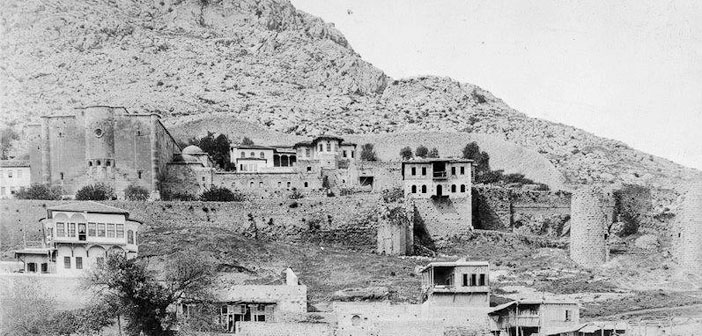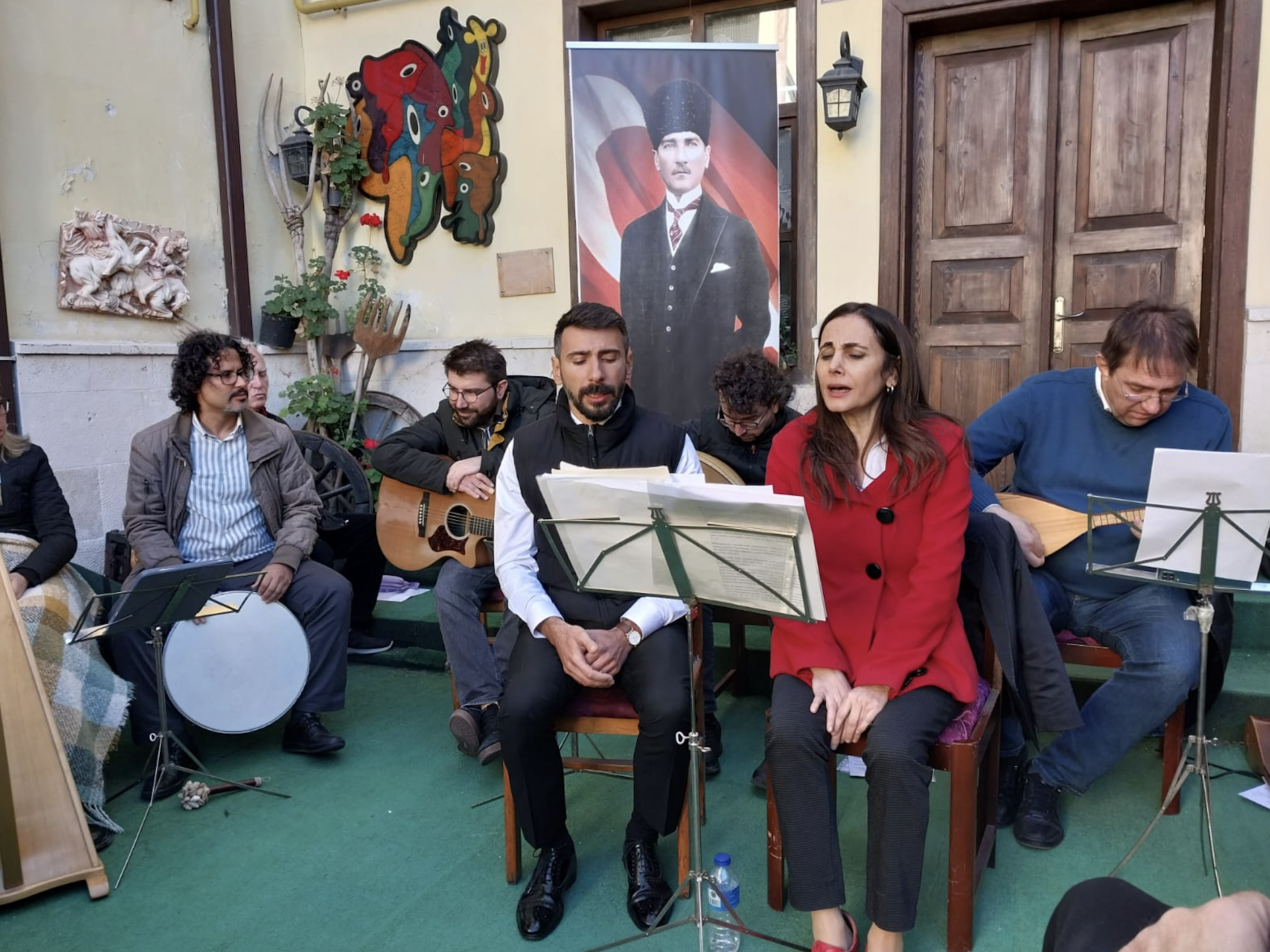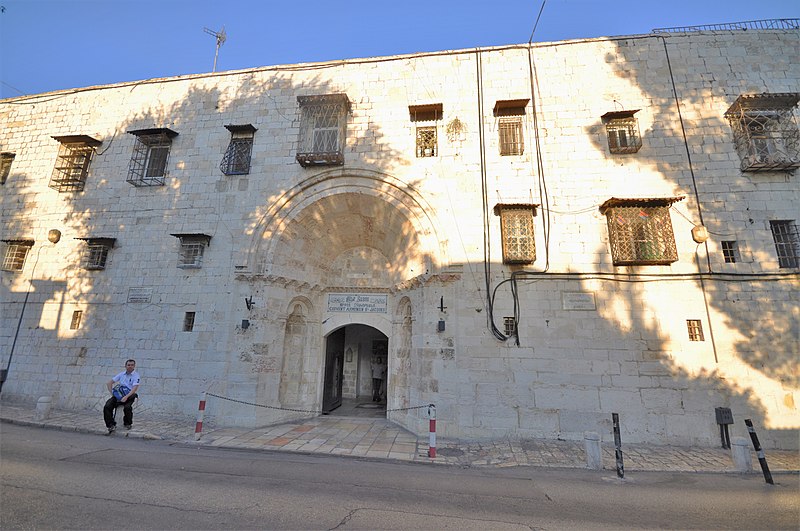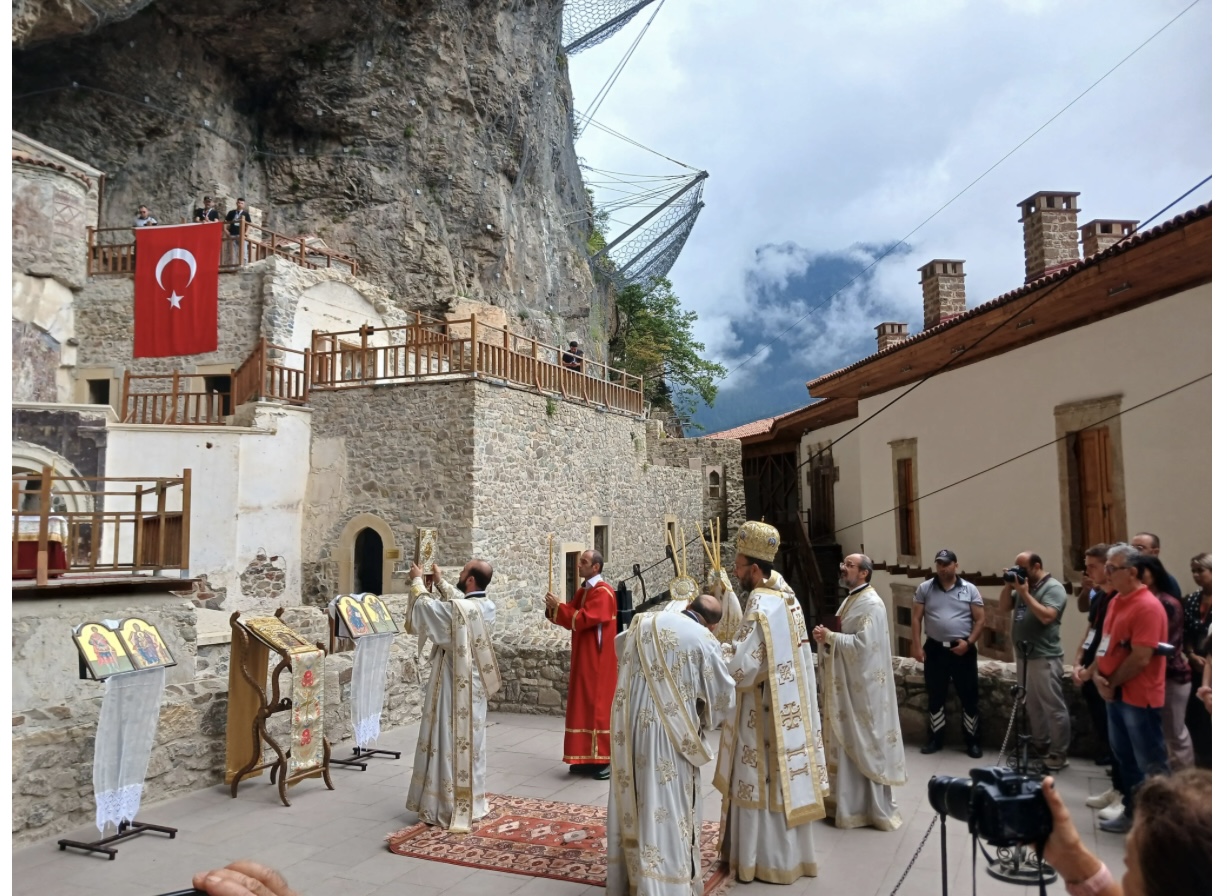Catholicos of Cilicia Aram I stated they will make a submission to ECHR for the return of Sis Catholicosate.
Catholicos of Cilicia Aram I said that they decided to appeal to ECHR after Turkey’s Constitutional Court denied their request. On December 7, it was announced that the submission is completed.
The Catholicos first announced that they will file a case against Turkey to reclaim ownership of the historic headquarters of the Catholicosate of Sis back on September 2014. On April 28, 2015, Catholicosate appealed to the Constitutional Court, requesting the return of the spiritual center in Sis. The Catholicosate’s St. Sophia Church and Monastery and the surrounding lands are located in Kozan province of Adana.
On December 7, a press conference was held in Brussels and it was announced that the case is submitted to ECHR. Payam Akhavan, international lawyer and professor from McGill University in Montreal, spoke at the conference: “The discussion and final decision over our claim can last 4 or 5 years. However, we have been waiting for justice for 100 years; so, we can wait for another 4 or 5 years. This case is of special importance. The arguments brought to the court will bring major questions forward. It will be within the interest of Turkish government to solve the issue before the court does it.”
The first legal action against Turkey
On December 5, Catholicos Aram I, in a live video broadcast from the current seat of the Catholicosate, stated that the case in question is the first legal action taken against Turkey after the Armenian Genocide of 1915.
Here is the official statement by Catholicosate:
“This is the first legal action taken against Turkey after the Armenian Genocide of 1915. This legal action is the result of a long and serious reflection, consultation, and study, and is based on the provisions of international law, including the decisions of the Lausanne Conference of 1932 pertaining to the minorities living within the boundaries of the Republic of Turkey.
This is a very important action—legal action—taken by the Armenian Catholicosate of Cilicia. In fact, for a hundred years, we laid the emphasis in our continuous efforts, within the framework of the Armenian cause, on the recognition of the Armenian Genocide. I believe that this is the time that we move from the stage of recognition to reparation, of course, without undermining the pivotal importance of the recognition of the Armenian Genocide.
I do believe that this is the high time, and, in fact, our legitimate right and sacred obligation, to claim the restoration of the ownership of the centuries old seat of the Catholicoasate in Sis. We should not forget and the international community should know that besides the one and a half million victims of the Armenian Genocide, thousands of Armenian churches, monasteries, community and church properties, including the individual properties, were confiscated by the Turkish authorities. Furthermore, 48 hours were given to the Catholicos Sahak of Cilicia to leave the premises of the Catholicosate with his parishes.
These are not fictions; they are facts of history. And we never forget these painful experiences of our people a hundred years ago. And it goes without saying that forceful confiscation of properties is against international law.
Tomorrow, in Brussels, a press conference will take place with the participation of four members of our legal team. And through this press conference, our representatives will explain the various stages and dimensions, and expectations pertaining to this lawsuit.
Dear fellow Armenians,
The Armenian cause is the case of justice. It is the cause of violations of human rights. It is the cause of our people. We never forget the Armenian Genocide.
Recognition and reparation: this is our clear and firm position as a people and a church.
Therefore, it is my firm expectation that our people will continue to support all actions, initiatives, and programs that are aimed at the restoration of justice.
Justice—we want justice from the international community. That is the clear and firm position of our people.
May God bless you all.”





